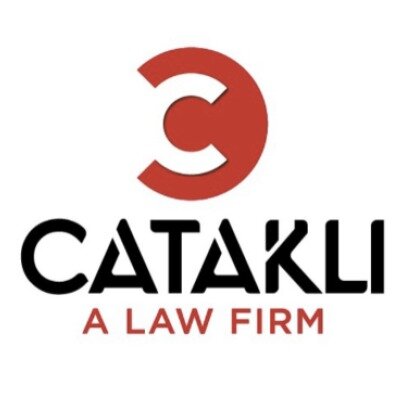Best Nonprofit & Charitable Organizations Lawyers in Luxembourg
Share your needs with us, get contacted by law firms.
Free. Takes 2 min.
List of the best lawyers in Luxembourg, Luxembourg
About Nonprofit & Charitable Organizations Law in Luxembourg, Luxembourg
Luxembourg is acclaimed for its robust legal framework supporting Nonprofit and Charitable Organizations (NPOs). The country allows the establishment of various forms of NPOs, including associations sans but lucratif (ASBL), foundations, and special foundations. Luxembourg’s legal standards for these organizations are high to ensure transparency, accountability, and the proper utilization of funds, encouraging civic engagement and supporting philanthropic endeavors.
Why You May Need a Lawyer
Legal counsel is often indispensable for navigating the complexities associated with establishing, managing, or dissolving a nonprofit organization in Luxembourg. Common scenarios that might necessitate legal assistance include:
- Setting up a nonprofit or charitable organization, which involves understanding the legal requirements, drafting bylaws, and registering the entity with the proper authorities.
- Ensuring compliance with Luxembourg's financial and governance regulations specific to nonprofit entities.
- Advising on tax-related matters, including eligibility for tax exemptions or deductions.
- Addressing employment issues within the organization, such as labor standards and volunteer agreements.
- Navigating cross-border philanthropic activities and fundraising regulations.
- Resolving disputes among stakeholders or between the organization and regulatory bodies.
Local Laws Overview
Nonprofit & Charitable Organizations in Luxembourg must adhere to a set of regulations and legal obligations. Key aspects include:
- Legal Status: NPOs in Luxembourg primarily operate as ASBLs. They must be registered with the Luxembourg Trade and Companies Register (RCS).
- Governance: NPOs are required to have a board of directors and follow standardized procedures for meetings and decision-making.
- Financial Transparency: They must maintain accurate financial records and often present annual financial statements. Depending on the size, some may require external audits.
- Taxation: Certain NPOs qualify for tax exemptions, but must comply with strict guidelines to maintain this status.
- Fundraising: There are specific guidelines for conducting fundraising activities to ensure ethical conduct and use of funds.
- Dissolution: Clear rules exist for the dissolution of NPOs, including settling debts and redistributing remaining assets for similar charitable causes.
Frequently Asked Questions
What is an ASBL?
An ASBL stands for "association sans but lucratif" and is a nonprofit organization under Luxembourg law, designed for non-commercial purposes.
How do I establish an NPO in Luxembourg?
You need to draft articles of incorporation, set internal regulations, appoint a board, and complete the registration with the Luxembourg Trade and Companies Register (RCS).
Are nonprofit organizations taxed in Luxembourg?
Some NPOs may qualify for tax exemptions. However, eligibility depends on the nature of their activities and compliance with the requirements laid down by Luxembourg tax authorities.
Can a foreign entity establish an NPO in Luxembourg?
Yes, foreign entities can set up NPOs, but they must comply with Luxembourg's registration and governance requirements.
What is the minimum financial requirement to start an NPO?
There is no fixed minimum capital requirement to establish an ASBL, but sufficient funds must be in place to sustain its activities.
Do I need a Luxembourg resident as part of my board for an ASBL?
While not legally mandatory, having local residents can be beneficial for compliance and operational purposes.
How often must financial accounts be submitted?
Typically, annual financial statements are required, with timing and requirements varying based on the organization's size and type.
What legal consequences can arise from non-compliance with NPO laws?
Non-compliance can result in penalties, loss of tax-exempt status, or even dissolution orders from regulatory authorities.
Is it possible to convert an ASBL into a commercial entity?
Yes, but it requires significant restructuring and compliance with corporate legislation, typically involving legal assistance.
Are there specific laws regarding volunteer management?
Yes, volunteers are protected under labor laws, with guidelines concerning agreements, insurance, and workplace standards.
Additional Resources
In Luxembourg, several resources are available for those involved with Nonprofit and Charitable Organizations:
- Ministry of Justice: Provides guidelines and legal documentation requirements for NPOs.
- Luxembourg Trade and Companies Register (RCS): Key for official registration and annual compliance.
- Financial Supervisory Commission (CSSF): Offers oversight for NPOs with significant financial activity.
- TAX Administration: Outlines tax obligations and possible exemptions for NPOs.
Next Steps
For those seeking assistance in setting up or managing a Nonprofit organization in Luxembourg, consider taking the following steps:
- Research: Familiarize yourself with Luxembourg’s legal requirements for NPOs.
- Consult a Lawyer: Seek legal counsel to ensure compliance and address specific legal questions or challenges.
- Draft Necessary Documents: Work with a legal professional to create founding documents such as bylaws and articles of incorporation.
- Register the Organization: File all required documents with the RCS for legal recognition.
By following these steps, individuals can effectively navigate the legal landscape of Nonprofit & Charitable Organizations in Luxembourg.
Lawzana helps you find the best lawyers and law firms in Luxembourg through a curated and pre-screened list of qualified legal professionals. Our platform offers rankings and detailed profiles of attorneys and law firms, allowing you to compare based on practice areas, including Nonprofit & Charitable Organizations, experience, and client feedback.
Each profile includes a description of the firm's areas of practice, client reviews, team members and partners, year of establishment, spoken languages, office locations, contact information, social media presence, and any published articles or resources. Most firms on our platform speak English and are experienced in both local and international legal matters.
Get a quote from top-rated law firms in Luxembourg, Luxembourg — quickly, securely, and without unnecessary hassle.
Disclaimer:
The information provided on this page is for general informational purposes only and does not constitute legal advice. While we strive to ensure the accuracy and relevance of the content, legal information may change over time, and interpretations of the law can vary. You should always consult with a qualified legal professional for advice specific to your situation.
We disclaim all liability for actions taken or not taken based on the content of this page. If you believe any information is incorrect or outdated, please contact us, and we will review and update it where appropriate.
















